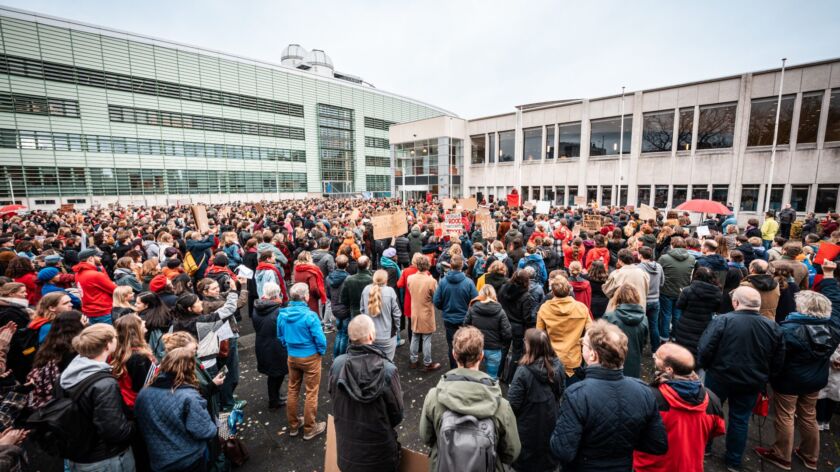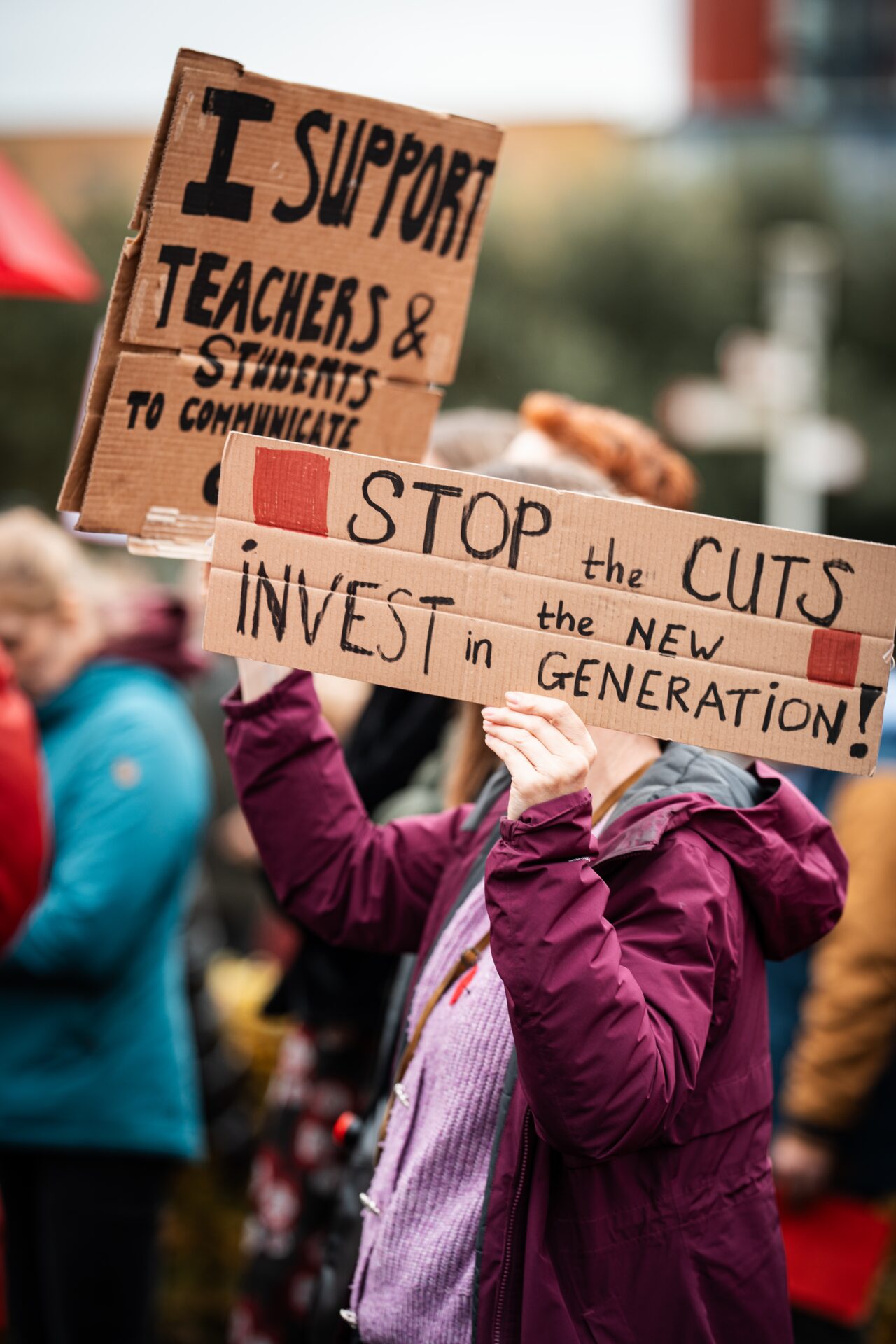Facing major opposition, the coalition isn’t willing to budge on their cuts for education and research
-
 Demonstratie tegen de bezuinigingen op de campus. Foto: Johannes Fiebig
Demonstratie tegen de bezuinigingen op de campus. Foto: Johannes Fiebig
The government’s proposed cuts to education and research will falter in the Senate, the opposition parties warn. But judging by Tuesday evening’s debate in the House of Representatives, the four ruling coalition parties do not seem overly concerned about that prospect. ‘For now, we are playing it safe.’
In recent days, several opposition parties have presented proposals to reverse or partly reverse the government’s planned cuts to funding for education and research. They sense an opportunity knowing that the government’s majority in the House is not replicated in the Senate, where the opposition has the power to stop the budget in its tracks.
During Tuesday evening’s debate on the national education and research budget, Luc Stultiens (GroenLinks-PvdA) left no room for doubt: his party plans to vote against the cuts to education and research. ‘Don’t do it’, he urged, echoing the call of the thousands of demonstrators who travelled to The Hague on Monday in protest at the cuts.
Even Chris Stoffer of the SGP, a party known for its pro-government stance, warned that the coalition’s plans could seriously backfire. If a majority in the Senate rejects this budget, the existing budget will remain in place, complete with the investments made by the previous government. ‘Is this clear in the minds of the coalition?’
A united front
If that is the case, there was little evidence of such foresight on Tuesday evening. The coalition parties – PVV, VVD, NSC and BBB – formed a united front in defence of the budget. All questions about political feasibility were referred to education minister Eppo Bruins. It’s up to him how he goes about gaining support for the measures, was the line the parties took.

The government’s stance left the opposition parties incredulous. Is the PVV really going to keep on driving towards a brick wall, Jan Paternotte (D66) asked Patrick van der Hoeff of the PVV. ‘I’m not afraid of hitting a brick wall’, Van der Hoeff replied. Questions put to the VVD, NSC and BBB met with a similar response.
In the debate, the four governing parties failed to justify the cuts, other than stating their aim to redirect resources towards defence and alleviating the cost of living. Why this money has to come at the expense of education and research remained unclear.
Funding not always the solution
Their main line of defence was that problems in education are not always solved by additional spending. The investments of recent years have done little to address issues such as the ongoing teacher shortage and continuing decline in pupils’ reading skills. The parties’ reasoning appears to be that if funding has not led to demonstrable improvements it can just as well be axed.
‘We find ourselves in a situation where the minister is not defending a budget, but deploring a budget.’
Yet even education minister Eppo Bruins appears to disagree with this position. He has referred to his own cuts as ugly and painful. As Jan Paternotte (D66) noted, ‘We find ourselves in a situation where the minister is not defending a budget, but deploring a budget.’
Even so, the coalition parties stood squarely behind their government’s plans, sticking to the general observation that austerity is bound to hurt. Harmen Krul (CDA) did his best to find out which points are weighing heavily on the minds of the coalition party NSC, but Aant Jelle Soepboer of the NSC remained tight-lipped in the face of repeated questions. The Christian Union took a similar line concerning subsidised volunteer projects for young people. ‘We are not cutting these social services as a whole, just the subsidies attached’, Soepboer replied.
Regions
Claudia van Zanten of the BBB also came under fire. After all, wasn’t the party founded to give the regions a voice? With this in mind, D66, CDA and SP wanted to know what good the budget was going to do beyond the big cities. Van Zanten was unable to come up with a single example.
The VVD also took a hit where it hurts: economists and businesses alike have criticised the proposed cuts as working to the detriment of the country’s economic future. Joost Eerdmans of JA21 asked: ‘So is the whole economic world crazy or is the VVD crazy?’
Claire Martens-America of the VVD understood the concerns behind the question, but had little to say in response. ‘For now, we are playing it safe’, she said, adding, ‘Ten years ago, we spent less money on education than we will be spending after these cuts.’
On Thursday, education minister Eppo Bruins will answer all questions from the House of Representatives. The biggest question being whether the government is willing to consider a compromise by then.



